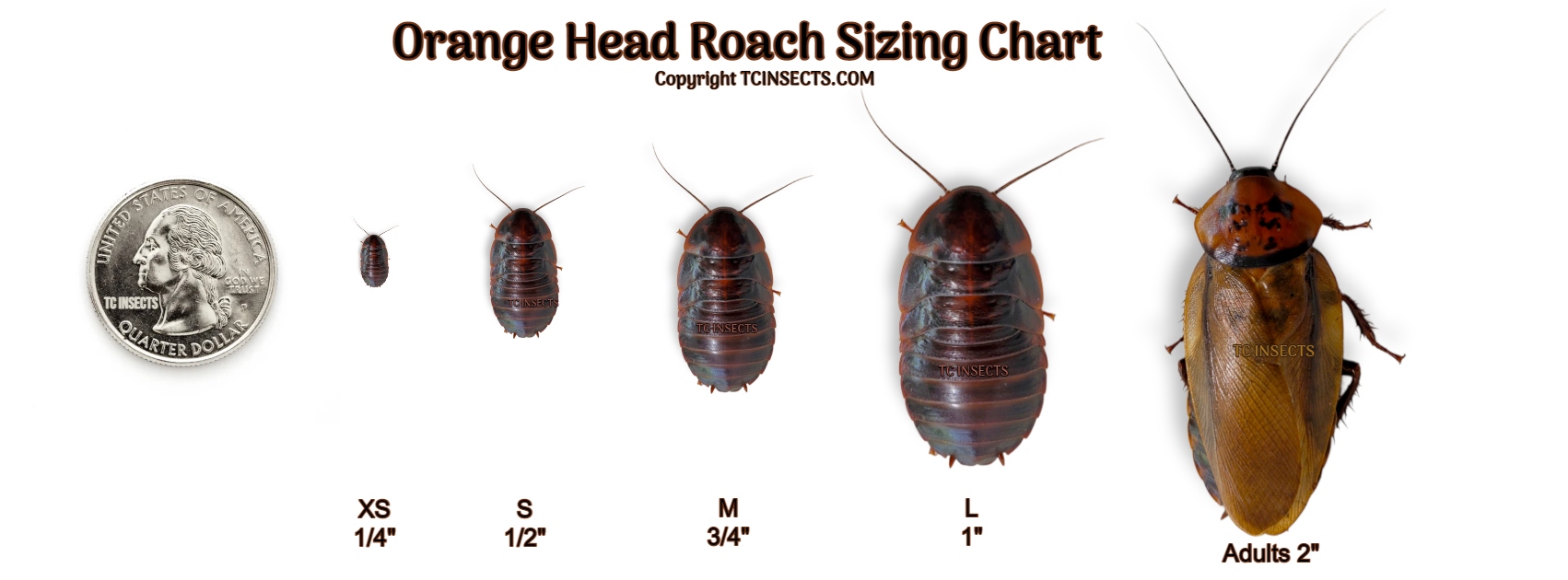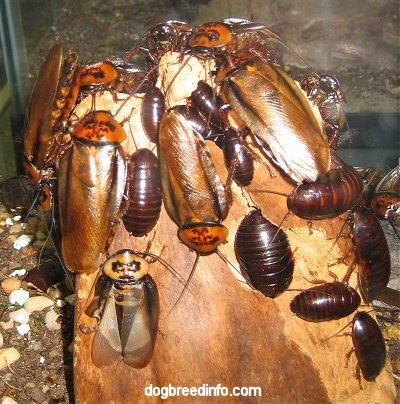Orange Oil For Cockroaches: A Natural And Effective Solution For Your Home
Few household pests evoke as much dread and disgust as cockroaches. These resilient creatures are not only unsightly but can also carry diseases and trigger allergies. When faced with an infestation, many homeowners immediately reach for harsh chemical sprays. However, a growing number of people are seeking natural, less toxic alternatives to keep their homes pest-free. Among these natural remedies, essential oils have gained significant attention, and one particular citrus powerhouse stands out: orange oil.
But can something as seemingly innocuous as orange oil truly tackle a cockroach problem? The answer, supported by research and practical application, is a resounding yes. Let's delve into how orange oil works its magic against these unwelcome intruders and how you can effectively incorporate it into your pest management strategy.
The Buzz Around Natural Pest Control
The appeal of natural pest control methods is undeniable. Concerns about the environmental impact of synthetic pesticides, their potential health risks to humans and pets, and the desire for a more eco-friendly lifestyle have led many to explore botanical solutions. Essential oils, derived from plants, offer a compelling alternative. They often possess strong aromatic properties that can repel or even kill insects, without leaving behind the noxious fumes or residues associated with conventional insecticides.
When it comes to cockroaches, their keen sense of smell makes them particularly susceptible to certain powerful aromas. This is where orange oil, with its fresh, potent citrus scent, comes into play as a formidable opponent.
Orange Oil: A Citrus Powerhouse Against Cockroaches
What Makes Orange Oil Effective?
The primary active ingredient in orange oil that makes it so effective against cockroaches and other insects is a compound called d-Limonene. This natural chemical is found in the rinds of citrus fruits, especially oranges, and is responsible for their characteristic scent.
The efficacy of orange oil and d-Limonene against cockroaches isn't just anecdotal. Scientific studies have explored its potential. As far back as 1988, the Journal of Pesticide Science published research highlighting the effectiveness of orange oil and d-Limonene in pest control. This foundational study paved the way for further investigation into its insecticidal properties.
- Alicia Lyons
- Campo De Fãºtbol El Molino
- Lip Liner Tattoo Near Me
- Amanda Duvall
- Brown British Short Hair Cat
So, how exactly does d-Limonene work its destructive magic on a cockroach? It's quite ingenious:
- Exoskeleton Penetration: The oil, particularly the acidic components within it, can penetrate the waxy outer coating (exoskeleton) of insects like cockroaches. This waxy layer is crucial for their survival, protecting them from dehydration and external threats.
- Tissue Disruption: Once the d-Limonene breaches the exoskeleton, it can then penetrate the insect's internal tissues. It disrupts their respiratory systems, leading to suffocation and death.
This dual action makes orange oil a potent weapon. It's not just cockroaches that fall victim to this citrus power. Orange oil has also been found to be highly effective against a wide range of other common household pests, including:
- Ants
- Dust mites
- Flies
- Wasps
- Spiders
- Crickets
- Ticks
- Bed bugs
- And, perhaps most notably, termites, where the citric acid component is particularly effective at melting their exoskeletons.
The general consensus among studies is that orange oil, or more specifically limonene oil, is one of the most effective natural repellents and killers you can use to deter and eliminate cockroaches.
Repellent or Killer? Understanding Orange Oil's Action
Orange oil operates on a dual front against cockroaches: it can both deter them and, in sufficient concentration, kill them on contact.
- As a Repellent: Cockroaches are highly responsive to powerful smells. The strong, distinct aroma of orange oil is profoundly objectionable to them. They perceive it as a threat or an unpleasant environment, prompting them to avoid areas treated with the oil. This makes orange oil a simple yet effective way to deter cockroaches and prevent them from entering or settling in your home.
- As a Killer: When applied directly or in concentrated forms, the d-Limonene in orange oil acts as a contact insecticide. It penetrates their waxy coating and disrupts their internal systems, leading to their demise. This "kill on contact" capability is a significant advantage, especially for addressing visible roaches.
It's important to distinguish between pure orange essential oil and commercially formulated products. While pure essential oils can deter and kill on contact, some commercial products, like "Orange Guard Home Pest Control," are specifically designed as organic insecticides. These products often contain a higher concentration of d-Limonene (e.g., almost 6%) and are ready to spray, offering proven effectiveness as a control against a broad range of pests, often with residual repellent effects lasting for weeks. Conversely, some orange oil products, like "Medina Orange Oil," might not be labeled as pesticides and primarily act as deterrents or only kill insects they directly come into contact with.
How to Use Orange Oil for Cockroach Control
Incorporating orange oil into your pest control routine is relatively straightforward, whether you opt for a DIY approach or a ready-made solution.
DIY Orange Oil Spray
Making your own natural cockroach repellent and killer spray is easy and cost-effective:
- Ingredients: You'll need orange essential oil (or lemon essential oil, which also contains d-Limonene) and water.
- Preparation: In a spray bottle, mix a few drops of citrus essential oil with water. A good starting ratio is about 10-15 drops of essential oil per cup of water. You can adjust the concentration based on your needs and the severity of the problem.
- Application: Spray the solution directly onto cockroaches you see. For preventative measures, spray in areas where cockroaches are likely to hide or enter your home. This includes:
- Along baseboards
- In cracks and crevices
- Behind and under appliances (refrigerators, stoves, dishwashers)
- Under sinks and in cabinets
- Around window frames and door thresholds
- Any known entry points.
- Frequency: Reapply the spray regularly, perhaps every few days or weekly, especially in high-traffic areas, to maintain the repellent effect. The strong scent will keep working for days.
Commercial Orange Oil Products
If you prefer a ready-to-use solution or a product with a higher, more consistent concentration of d-Limonene, consider commercial options. Products like Orange Guard are formulated specifically for pest control and contain a high concentration of the active ingredient. These sprays are often designed to kill on contact and offer extended repellent action.
- Ease of Use: Simply spray directly from the bottle.
- Targeted Action: Formulated for maximum efficacy against pests.
- Follow Instructions: Always read and follow the instructions on the product label for safe and effective use.
Other Essential Oils That Can Help
While orange oil is highly effective, it's worth noting that several other essential oils have also been researched and proven to be effective natural cockroach repellents. You can use these in conjunction with orange oil or as alternatives:
- Eucalyptus oil: A good repellent that leaves a strong, lingering scent.
- Citronella oil: Particularly effective for repelling roaches outdoors.
- Peppermint oil: Another strong-smelling oil that deters pests.
- Cinnamon oil: Known for its insecticidal properties.
- Thyme oil: Also shows promise as a repellent.
- Cedarwood oil: A classic natural repellent for various insects.
- Lemon oil: Similar to orange oil, due to its d-Limonene content.
- Tea tree oil: Known for its antiseptic and insecticidal properties.
- Garlic essential oil: Research indicates it has significant potential as a botanical insecticide against cockroaches, especially when combined with mandarin orange oil.
Using a blend of these oils can sometimes enhance their overall effectiveness, creating a multi-layered defense against cockroaches.
Important Considerations and Best Practices
While orange oil is a powerful natural tool, it's important to approach pest control holistically:
- Not a Magic Bullet for Severe Infestations: For severe cockroach infestations, natural remedies like orange oil may need to be part of a broader integrated pest management (IPM) strategy, potentially alongside professional pest control services.
- Combine with Sanitation: The most effective pest control always starts with good sanitation. Keep your home clean, free of food crumbs, and store food in sealed containers.
- Seal Entry Points: Identify and seal cracks, crevices, and other potential entry points around your home to prevent roaches from getting in.
- Consistency is Key: Regular application of orange oil sprays is crucial to maintain their repellent and killing effects.
- Safety First: Although natural, essential oils are concentrated. Keep them out of reach of children and pets. Always test the spray on an inconspicuous area of surfaces before widespread application to ensure it doesn't cause discoloration or damage. Ensure proper ventilation when spraying.
Conclusion
Orange oil, with its potent d-Limonene content, offers a compelling and natural solution for dealing with cockroaches. Whether you're looking to deter these unwelcome guests or eliminate them on contact, orange oil provides an effective, pleasant-smelling alternative to harsh chemical pesticides. Its ability to penetrate exoskeletons and disrupt insect tissues, coupled with its strong repellent scent, makes it a formidable opponent for cockroaches, ants, termites, and a host of other pests. By incorporating orange oil into your pest management routine, either through DIY sprays or commercial products, you can take a significant step towards a healthier, pest-free home, all while enjoying the fresh, clean aroma of citrus.
Final Summary: Orange oil, rich in d-Limonene, is a proven natural and effective solution for controlling cockroaches. It works by penetrating their exoskeletons and disrupting their internal systems, while its strong citrus scent also acts as a powerful repellent. Studies dating back to 1988 confirm its insecticidal properties against various pests, including cockroaches, ants, and termites. You can use orange oil as a DIY spray mixed with water or opt for commercial d-Limonene-based products. For best results, integrate orange oil use with good sanitation practices and sealing entry points, making it a valuable component of a natural pest control strategy.

Orange Head Roaches (Eublaberus posticus) - TC INSECTS

Orange Spotted (Dubia) Roaches – Exotic Pet Store

Pictures of the Cockroach along with information, nicknamed Waterbug